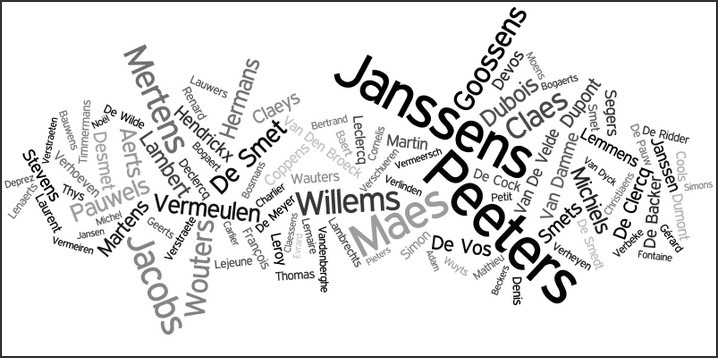Belgian Last Names: Unveiling Belgian Heritage

Source : https://surnames.behindthename.com
Belgium is a small country with a rich and diverse history. Its people have a unique culture and heritage that is reflected in their last names. Belgian last names are often derived from the language, religion, and region of origin. They can also be indicative of a family’s occupation or social status. In this article, we will explore the history and meaning behind some of the most common Belgian last names, providing insight into the country’s past and its people’s heritage.
Exploring the Origins of Belgian Last Names: Tracing the Roots of Belgian Heritage
Belgium is a small country with a rich and diverse history. Its people have a long and proud heritage, and many of them have last names that reflect their ancestry. In this article, we will explore the origins of Belgian last names and trace the roots of Belgian heritage.
Belgium is a country with a long and complex history. It has been inhabited by many different peoples over the centuries, including the Celts, the Romans, the Franks, and the Burgundians. As a result, many of the last names in Belgium have their roots in these ancient cultures.
The most common type of Belgian last name is derived from the French language. These names often end in “-eau” or “-el” and are usually derived from a place name or a profession. For example, the name “Dupont” is derived from the French word for bridge, and “Lefebvre” is derived from the French word for blacksmith.
Other common Belgian last names are derived from Germanic languages. These names often end in “-er” or “-en” and are usually derived from a place name or a profession. For example, the name “Schmidt” is derived from the German word for smith, and “Bauer” is derived from the German word for farmer.
Finally, some Belgian last names are derived from Dutch. These names often end in “-en” or “-s” and are usually derived from a place name or a profession. For example, the name “Van der Meer” is derived from the Dutch word for lake, and “Van den Berg” is derived from the Dutch word for mountain.
By tracing the roots of Belgian last names, we can gain insight into the history and culture of the country. From the French, Germanic, and Dutch influences, we can see how the people of Belgium have been shaped by their past. We can also gain a better understanding of the diversity of the Belgian people and their unique heritage.
Investigating the Meaning Behind Belgian Last Names: Uncovering the Significance of Family Names in Belgium
Belgium is a small country located in Western Europe, and it is home to a diverse population of people with a variety of cultural backgrounds. As a result, the country has a wide range of last names, each with its own unique meaning and history. In this article, we will explore the significance of Belgian last names and uncover the stories behind some of the most common family names in the country.
Belgian last names are often derived from the language of the region in which the family originated. For example, the name “Van den Berg” is derived from Dutch and means “from the mountain.” Similarly, the name “De Vos” is derived from French and means “fox.” These names often reflect the geographical location of the family’s origin, such as a mountain or a river.
In addition to geographical origins, Belgian last names can also be derived from occupations. For example, the name “Baker” is derived from the English word for “baker” and indicates that the family was likely involved in the baking profession. Similarly, the name “Vandenbroucke” is derived from the Dutch word for “butcher” and indicates that the family was likely involved in the butchering profession.
Belgian last names can also be derived from personal characteristics. For example, the name “Lambert” is derived from the Germanic word for “bright” and indicates that the family was likely known for their intelligence or wit. Similarly, the name “De Smet” is derived from the Dutch word for “wise” and indicates that the family was likely known for their wisdom.
Finally, Belgian last names can also be derived from religious affiliations. For example, the name “Van der Heyden” is derived from the Dutch word for “of the Lord” and indicates that the family was likely of the Christian faith. Similarly, the name “De Vos” is derived from the French word for “of the fox” and indicates that the family was likely of the Jewish faith.
In conclusion, Belgian last names are often derived from the language of the region in which the family originated, their occupation, personal characteristics, or religious affiliations. By understanding the meaning behind these names, we can gain insight into the history and culture of the Belgian people.
Conclusion
Belgian last names are a reflection of the country’s rich and diverse history. From French, Dutch, German, and other European influences, Belgian last names are a testament to the country’s unique cultural heritage. They are also a reminder of the many different cultures that have shaped the country over the centuries. By understanding the origins of Belgian last names, we can gain a better appreciation of the country’s past and its people.





